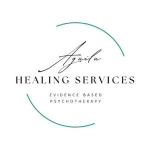Healing Betrayal Trauma: Navigating the Road to Recovery
Betrayal trauma can leave deep scars, but healing is possible. Imagine this: a person betrayed by someone they trusted, like a partner cheating or a friend stabbing them in the back. It’s a gut-wrenching experience, shaking the very foundation of trust and security.
In therapy, I’ve seen individuals grapple with the aftermath of betrayal. They often struggle with feelings of betrayal, anger, and confusion. But through therapy, they find a safe space to process their emotions, rebuild their sense of self-worth, and learn to trust again.
From my experience, healing from betrayal trauma involves acknowledging the pain, setting boundaries, and finding healthy ways to cope. It’s not easy, but with the right support and guidance, individuals can emerge stronger and more resilient than ever before.
Let’s delve deeper into this journey of healing together.
Understanding Betrayal Trauma
Betrayal trauma is a unique form of psychological injury that occurs when someone we trust violates that trust in a significant way. It can happen in various relationships, from romantic partnerships to friendships and even within families. The effects of betrayal trauma can be profound, impacting every aspect of a person’s life.
The Impact of Betrayal Trauma
The impact of betrayal trauma can be far-reaching, affecting our mental, emotional, and physical well-being. In therapy, individuals often describe experiencing symptoms such as:
- Intense emotional distress: Betrayal can trigger a range of intense emotions, including anger, sadness, shame, and guilt. These emotions may come in waves, making it difficult to predict or control our reactions.
- Trust issues: After experiencing betrayal, it’s natural to become wary of trusting others. We may struggle to open up or form new connections, fearing that we’ll be hurt again.
- Self-esteem issues: Betrayal can deeply wound our sense of self-worth, leading to feelings of inadequacy, self-doubt, and shame. We may question our value and worthiness of love and respect.
- Relationship difficulties: Betrayal can strain or even rupture our relationships with others. It can create distance and distrust, making it challenging to maintain healthy connections with loved ones.
Navigating the Healing Journey
Healing from betrayal trauma is a complex and often challenging process. It requires time, patience, and a willingness to confront difficult emotions. In therapy, individuals are provided with a safe and supportive environment to explore their experiences, process their emotions, and develop coping strategies.
Rebuilding Trust and Self-Worth
One of the most challenging aspects of healing from betrayal trauma is rebuilding trust—both in others and in ourselves. It’s natural to feel wary and cautious after experiencing betrayal, but therapy offers individuals the opportunity to explore their trust issues in a safe and supportive environment.
Moving Forward with Resilience
While healing from betrayal trauma is undoubtedly challenging, it’s essential to remember that it is possible. With the right support and guidance, individuals can emerge from betrayal trauma stronger, wiser, and more resilient than ever before.
In therapy, individuals are empowered to take control of their healing journey, reclaiming their power and agency in the process. They learn to trust themselves and their instincts, set healthy boundaries, and cultivate meaningful connections with others. Through their journey of healing, individuals discover their inner strength and resilience, paving the way for a brighter and more hopeful future.

